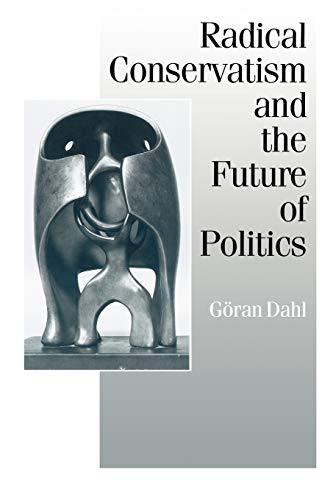Radical Conservatism and the Future of Politics
no information available
Over the last 20 years the post-war centre-ground which recognized the welfare state, the funding of education, protection of the environment and the management of capitalism as the proper business of the state, has fragmented. The New Left of the 1990s is more conservative than the Old Left of the 1960s and 70s. Emphasis on the freedom of the individual and the proper limitations of state power has changed the climate of everyday life. For Dahl, the genocide in the former Yugoslavia and the bombing in Oklahoma City, each bear the traces of the new 'radical conservatism'. Even countries in the former socialist bloc have witnessed a conservative revolution. This book locates the roots of radical conservatism in the writings of Nietzsche, Dostoyevsky, Heidegger, Junger and Schmitt. It documents the radical conservative worldview and points to limitations in its perspective. Dahl asserts that we should be wary of considering radical conservatism as a singular phenomenon and discusses the divergence in belief and policy between different nation states in Europe, North America, the Middle East and Asia. ... Read more Read less











